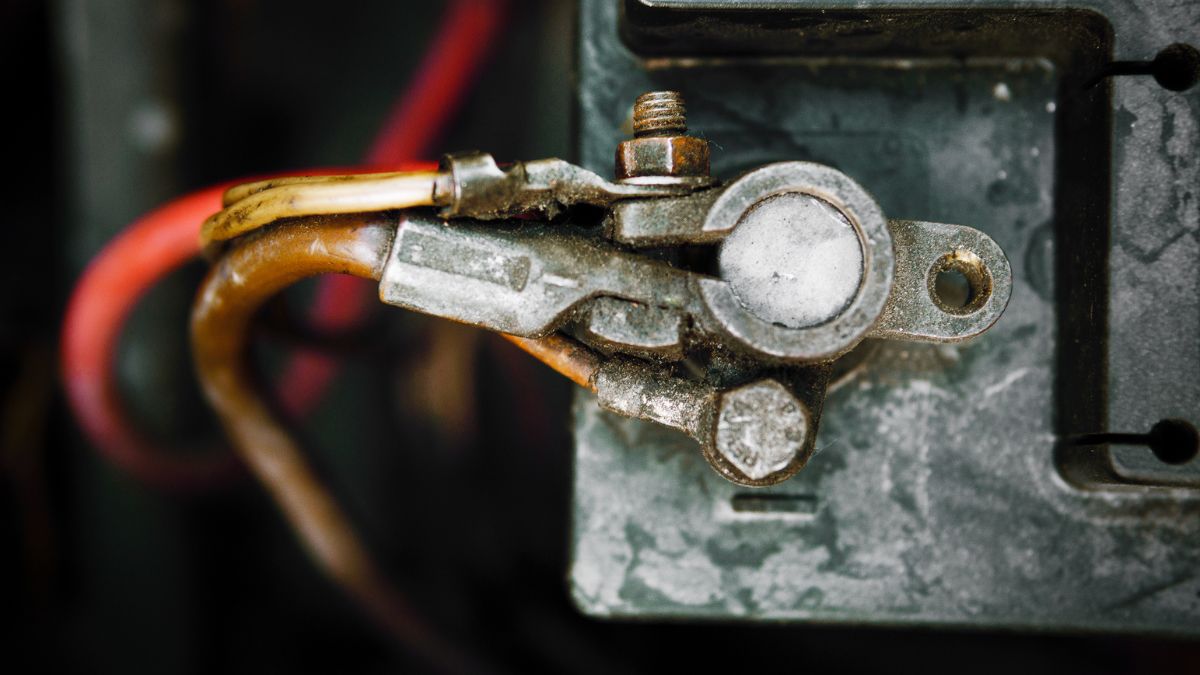Recycling lead acid batteries is an important part of protecting our environment. Just ask the residents of Flint, Michigan who have been exposed to dangerous levels of lead in their water supply.
This type of work properly helps to keep toxic materials out of our environment and bodies, making it essential to recycle them widely throughout the world. You can do your part by learning how to recycle lead acid batteries correctly.
In this article, you’ll learn about what lead acid batteries are, where to find places to recycle them, the steps needed for proper recycling and the risks associated with not recycling them responsibly.
If you’re looking for an easy and affordable way to extend the life of your lead acid batteries, then EZ Battery Reconditioning is the perfect solution. This product provides step-by-step instructions on how to safely recondition your lead acid batteries, so you can save money and help the environment by reducing your waste.
Why is It Important to Recycle Lead Acid Batteries?
You may not realize it, but proper disposal of these power sources is incredibly important for our environment!
Lead acid batteries are composed of sulfuric acid and lead plates that can be recycled to create new batteries. It is essential for us to recycle lead acid batteries in order to reduce the amount of hazardous materials leaking into the environment.
Recycling conserves resources by reducing the need to extract raw materials such as lead and plastic from the earth. It helps preserve these materials for future use and prevents them from being lost to the environment.
Furthermore, by properly disposing of lead acid batteries, we are able to reduce our dependence on landfill space, as well as avoid potential contamination in water sources due to improper storage or disposal.
Recycling lead acid batteries is a responsible way to contribute to a cleaner and healthier planet.
What Are Lead Acid Batteries?
Lead acid batteries are the bread and butter of power sources, so you’d better get to know ’em. A lead acid battery is a type of rechargeable battery which consists of a container filled with a mixture of sulfuric acid and lead, either in the form of plates or grids. When this chemical reaction takes place between the two materials, electrical energy is made available.
We can use lead acid batteries in many applications such as in cars, boats or for backup power supply systems. Recycling lead acid batteries helps reduce waste and conserve resources by reusing components from old batteries instead of discarding them as landfill material. It also reduces the amount of raw materials it needs to produce new ones since we can use recycled parts again and again.
By recycling lead acid batteries we are helping to create a cleaner environment while conserving valuable resources at the same time. With this knowledge under your belt, it’s time to find out where you can recycle these power sources responsibly.
Where Can I Recycle Lead Acid Batteries?
Heading to the recycling center with your lead acid battery in tow is the perfect way to give back and protect our planet. Luckily, it’s not hard to find a place that can take your old lead acid battery off your hands.
Many countries have laws in place that require retailers who sell batteries to also accept them for recycling when they’re no longer usable or needed. You can check online for local retailers that offer this service, or search “lead acid battery recycling near me” to find a facility nearby.
Companies that recycle scrap lead acid batteries are also an option if you have a large quantity of used batteries to get rid of. Doing so helps reduce hazardous materials from entering landfills, and keeps valuable components out of the waste stream. Furthermore, these companies typically offer payment for scrap batteries which helps offset the cost of purchasing new ones.
So the next time you’re looking to upgrade your car’s battery or purchase new AA cells for your remote control car, consider how you’ll dispose of them afterwards too!
What Are the Steps to Recycling Lead Acid Batteries?
Recycling lead acid batteries is an important step to help protect the environment, and it’s not hard to do. Here are the steps you should follow:
- Locate a certified scrap lead acid battery recycler in your area – ask around or search online for the best company to recycle scrap lead acid batteries.
- Take your old battery or have it picked up by a professional recycling service if you don’t have the means of transporting it yourself.
- The recycler will break down your old battery into its component parts, such as plastic casings and metal plates, before sending them off to be recycled into new materials.
Recycling lead acid batteries efficiently conserves and reuses valuable resources without harming the environment. The process is simple yet effective, keeping hazardous metals out of landfills and waterways while still getting use out of existing resources.
What Are the Benefits of Recycling Lead Acid Batteries?
You can help the environment and conserve resources by responsibly disposing of your old lead acid batteries, so you can recycle them into new materials. Recycling these types of batteries is beneficial because it reduces the amount of hazardous waste that would otherwise accumulate in landfills.
Lead acid batteries contain toxic chemicals like sulfuric acid, lead, and other metals which can leach into the soil and groundwater if not disposed of properly. By recycling these batteries, you’re helping to keep these toxins out of the environment as well as preventing them from entering the food chain.
Recycling lead acid batteries offers numerous benefits, one of which is the recovery of valuable metals such as copper and lead for reuse or resale. This conserves natural resources, as you no longer need to mine the materials from the earth to create new products.
Battery recycling conserves energy by reducing the demand for raw material extraction and manufacturing processes required to make a new product from scratch. Ultimately, recycling your old lead acid batteries allows you to make a positive environmental impact while also reducing costs associated with their disposal.
What Are the Risks of Not Recycling Lead Acid Batteries?
It’s clear that recycling lead acid batteries can be beneficial, but what about the risks of not recycling them? Unfortunately, there are various consequences to consider if you choose not to recycle lead acid batteries.
Firstly, improperly disposing of lead acid batteries can cause environmental contamination due to the hazardous materials they contain. Lead is a toxic element that can leach into groundwater and soil when discarded in landfills or left out in the open. This contamination can have serious impacts on local ecosystems and human health.
Additionally, improper disposal of lead acid batteries increases costs associated with clean-up efforts by local governments or private organizations tasked with taking care of hazardous waste. In some cases, these costs may be passed on to taxpayers who are forced to foot the bill for someone else’s irresponsible behavior.
Furthermore, failing to recycle lead acid batteries leads us to waste valuable resources such as metals and plastics instead of being reusing them in new products.
What Other Types of Batteries Can We Recycle?
If you’re wondering what other types of batteries that you can possibly recycle, you’ll be very happy to know that there are many! Besides lead acid batteries, you can recycle the following types of battery:
Alkaline Batteries:
- AA, AAA, C and D cells
- Button-style batteries (including those found in watches)
Lithium-ion Batteries:
- Rechargeable laptop and cell phone batteries
- Camera, cordless tool and e-cigarette batteries
Nickel-based Batteries:
- NiCad rechargeable batteries (found in cameras, cordless tools and more)
Recycling these types of batteries is beneficial for several reasons. It keeps hazardous materials out of landfills and incinerators where they could damage the environment, while also conserving valuable resources such as zinc, manganese, and nickel used in their production. Recycling also creates jobs and reduces greenhouse gas emissions associated with producing new products from scratch.
Tired of spending money on new batteries every month? EZ Battery Reconditioning can save you thousands of dollars over a lifetime. With step-by-step guides, pictures and diagrams for easy understanding, this program is simple and safe to use with no DIY skills required. Get instant access after payment and enjoy a 60 Day, 100% Satisfaction, Money Back Guarantee.
Conclusion
You now know the importance of recycling lead acid batteries and how to do it. Not only does recycling lead acid batteries protect the environment from hazardous waste, but it also helps conserve natural resources. Plus, you can feel good knowing that your old batteries are getting a second life!
Take, for example, the West Virginia Department of Environmental Protection’s Battery Management Program. This program has recycled more than 1 million pounds of lead acid battery material since its inception in 1988, reducing air pollution and conserving resources.
Recycling old batteries is a great way to reduce our carbon footprint and protect our environment for future generations. By reconditioning our old batteries, we can extend their life and use them for longer, cutting back on unnecessary waste and keeping our planet healthy. Read our article to learn how you can recondition old batteries and use them to help lower your carbon footprint.




